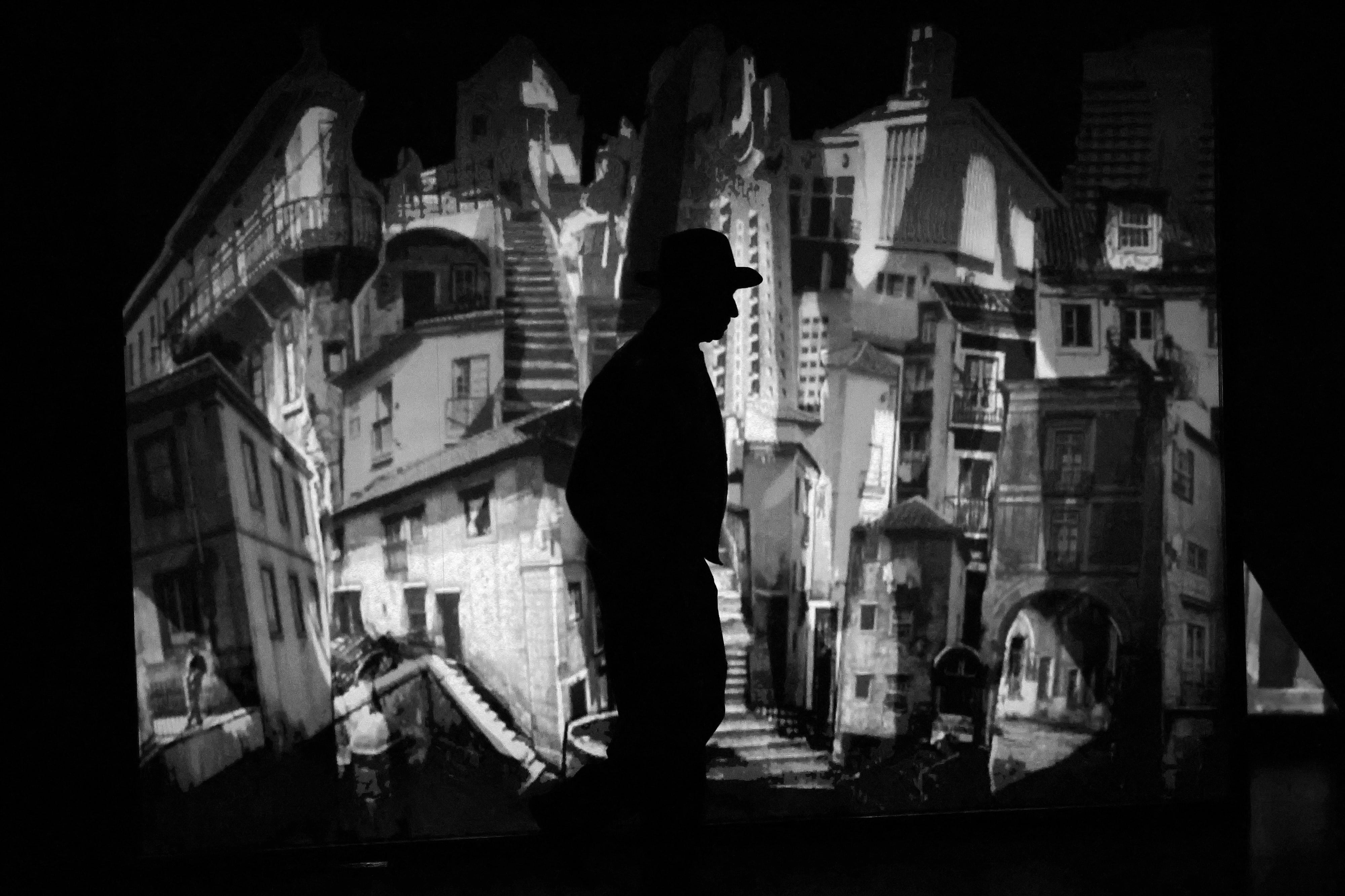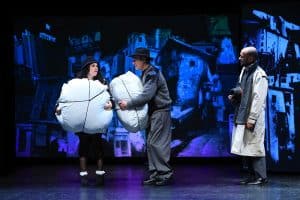The 1974 coup failed, Portugal didn’t join the EEC, the escudo pays for everything, Coca-Cola is still banned and fascism survives, in the play “The 25th of April Never Happened”, premiering Thursday at the Carlos Alberto Theater in Porto.
A dystopia, in the form of a tribute, of a Portugal without the April Revolution is the latest creation by the Palmilha Dentada company, directed by Ricardo Alves, who wanted to think what the country would be like if it had “continued to live in fear, with a PIDE that limited freedoms and thoughts”.
That morning, April’s captain Salgueiro Maia didn’t stop at a traffic light, hit a garbage truck, the traffic police came and took the soldier into custody, and so the revolution went up in smoke and April 25 never happened.

“There is no Coca-Cola, nor are we in the Schengen area. We liberated all the colonies because they only made a loss, except Angola because it had oil and made a profit, we still have PIDE [the political police], the same political system, we still have no options and we’re still afraid of being knocked on the door at night, homosexuality is still strongly repressed, child labor [is still] strong and ugly,” was how the director described the Portugal of the play, at the end of a rehearsal open to the press.
However, Ricardo Alves warned that “this isn’t a play about the big issues of the dictatorship, it’s about individuals and how they place themselves in society, the fears they have”.
In the first act, in a dark part of town, two members of the anti-fascist resistance meet. One wants the other to find a way to exchange euros into escudos and the other, in between lamenting that he has never drunk Coca-Cola, explains that he suspects the boss is from the PIDE.
The two are joined by a work colleague who one thinks is a fascist, but isn’t: “Oh man, didn’t you see that he’s a faggot? This must be where they meet, it’s hidden,” explains the Coke-hungry man.
Then the boss, the real fascist, Rosendo, played by Mário Moutinho, joins the conversation. He explains to one of them that the next day he’s going to Badajoz to collect the money from Consuelo, who fell for the love scam run by the company where they both work.
There’s also the anarchist, who thinks that the revolution can be achieved by bombing, the girl who is a model but then gets pregnant when she’s 15, the girl’s father, a follower of good morals, and yet another who betrays the resistance for money.
In between, Spain gets into trouble with Portugal over Olivenza and there goes the trip to Badajoz, the opportunity to drink Coca-Cola for the first time and to bring pink Crocs for the little girl who wanted them so much, but they were forbidden in Portugal.
“One of the things was our isolation, […] we lived in a different reality and the Croc is a good symbol, it’s something that isn’t worth five crowns and can be an object of desire for those who don’t have it. It’s ridiculous, but it’s symptomatic and it can show the anguish of being attracted to the forbidden and wanting to experiment, which is a fabulous thing we have in Democracy, we can even experiment with having fascist parties and see what happens,” said the director, who is also responsible for the text and set design (in this case, alongside Sandra Neves).
“April 25th Never Happened,” explained Ricardo Alves, has undergone changes as a result of reality, in particular the results of the March 10th elections: “I had thought of a slightly more ridiculous ending, but after the election results I felt the need to make it darker, with heavier tones, and I felt like saying a harsher message, warning us to be careful with our freedoms.”
And the fascist in the story? “Rosendo is a fascist by conviction, not because he’s a bad person, not all of them were just bastards and opportunists, there were some who really believed, just as we have some who believe in the liberal economy.”
The fascist, played by Mário Moutinho, ends up being fired because his wife, Ofélia, forced him to impose himself on the company and he was fired, ending up applying to the PIDE, to which, after all, he didn’t belong.
“I do well [as a fascist] because I knew them, I lived with them and this knowledge allows me to talk to my younger colleagues, tell stories, there were absurd and very petty things like the ban on Coca-Cola, girls being arrested for wearing pants to high school,” explained the actor, “openly left-wing” and who had “the happiest day” of his life on April 25.
“No one really knows what 48 years of dictatorship were like, what it meant, and the drunken joy that April 25 was for everyone and suddenly believing that everything was possible and that poetry of April 25 must be passed on,” he said.
Moutinho admitted, however, that “not everything has been achieved” and on the 50th anniversary of April 25 there will be no drunken rejoicing: “This is dangerous, we are in a delicate, very complex and dangerous situation.”
“The 25th of April Never Happened” will be on stage in Porto until the 27th and features Beatriz Baptista, Eloy Monteiro, Ivo Bastos, Filomena Gigante, Mário Moutinho, Rodrigo Santos and Valdemar Santos.










